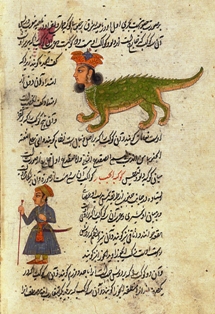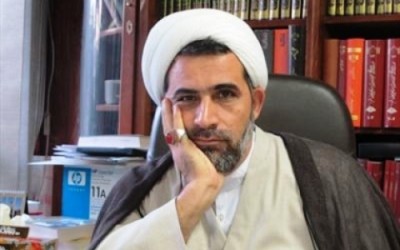Dr. Rasoul Jafarian is the associate professor of history at Tehran University. His remarkable CV is full of scientific studies, teachings, and executive activities. He has written a great number of articles, books, about the Safavid dynasty, Shia, and Iranian studies. Moreover, he has daily notes on his personal website to introduce visitors to current cultural and political evolutions of the Islamic world, particularly Iran.
Digitalizing all manuscripts and documents of Parliament library, publishing numerous books and holding many national and international conferences are just some activities done by Jafarian when he was the director of the Parliament library. Moreover, he is the director of the library of Iran and Islam in Qum.
One of his recent concerns is the history of science in Islamic Civilization in Medieval Times. In this regard, he has compiled his articles in “The Concept of Science in Islamic Civilization” which will be published at Elm publication in the near future. (To learn more about Dr. Rasoul Jafarian you can visit here)
Dear Prof. Jafarian thank you so much for your time. Let’s start our interview with this question as one of the experts in Iranian medieval history how do you define Iranian medieval history? In other words, when is the Medieval Times in your classification of Iranian history?
To consider history as medieval, ancient or any other era is a relative classification. Fundamentally defining historical eras depends on specific parameters like main social and political evolutions over the course of time. Classification of history as the medieval or contemporary era is in accordance with the European classifications of their own history. In fact, the concept of Medieval Times or middle age which has clear economic, philosophical, and religious characteristics in Europe and the USA has influenced our viewpoints about history. Of course, there is no problem if we regard some specified circumstances to classify history into various eras and to analyze events. For instance, you may even consider the Sassanid era as a Medieval Times between the Parthian Empire and the Islamic era. It’s worth mentioning that the Iranian Medieval Times has its own characteristics which are completely distinguished from the European middle age. There is a cultural decline in Europe in Middle Ages, while we have very different cultural conditions in Iran.
I believe that we have different classifications on the basis of diverse parameters. If you give more importance to the history of thought and philosophy or the political history particularly the history of empires and dynasties, or if art and literature are your subjects of studies, you will have different classifications of history.
In my classification, the 9th to 13th or 15th centuries can be considered as the Iranian medieval era. These definitions are acceptable as long as they are not considered as definitive invariable classifications. However, I believe that we should have more exact parameters in defining historical eras.
Do we have “the history of science” as a critical issue in Medieval Times? Do we have any particular book or essay in this regard?
If we consider the 9th to 15th centuries as Medieval Times, we have science, pseudoscience, and even ignorance classified as the field of science. We have all theoretical and practical fields of science. We can follow traces of science in art, technology, and every aspect of our daily lives. However, rarely do people pay attention to the philosophy of science or the history of science.
In other words, we deal with two levels of science: the first are those fields of science with which our daily life is concerned. The second is those discussions dealing with philosophy and the history of science. The latter level of science was seriously studied in Medieval Times. We have many critical unprecedented arguments about the philosophy of science and its history in Medieval Times which was not followed in later eras. Philosophers and theologians were determined to defend “the science”, to illustrate its nature, and to evaluate its credibility. They resisted against Akhbaries and all other anti-science people who believed that “science” would make people alien to religion and so they opposed all kinds of science. Many remarkable essays and books were written in the 9th to 11th century about science and its nature, levels, and classifications. Afterward, these arguments were superficially imitated and so they have not developed anymore.
What are your main concerns regarding the history of science in Medieval Times?
Flourishing human thought in Medieval Times is due to exact scientific viewpoints developed in this era. Even though these viewpoints were not dominant in society, they were common among some scholars. Despite their limitations, these scholars who mainly lived in Khurasan and Baghdad proposed many crucial arguments. Because of these critical viewpoints, many scientific works were written in the 3rd and 4th centuries.
I am going to extract these viewpoints from old scientific textbooks to show that our science developments in that era were dependent on the efforts of some special scholars. Furthermore, I intend to elaborate that those paradigms of science production derived from Greece, India, Iran, and other civilizations were impassable obstacles in the way of scientific progress. In other words, they did not facilitate the process of scientific progress of the Islamic civilization. Having made these kinds of thoughts sacred through time did not let thinkers criticize or evaluate them; this is one of the main issues that I am going to examine in my studies.
You have studied the problem of “superstitions” in the articles “The Concept of Science in Islamic Civilization in Ajayeb al- Makhluqat” and also “The Concept of Superstition in Medieval Islamic Resources”. Do we have any fields of science that would be considered superstitions in later eras?
Science in mind and reality is a pure problem whose nature is gradually influenced by social and human issues. Astronomy and mathematics are two exact fields of science. However, astronomy, for example, is affected by philosophical traditional, and human issues. Being intertwined with unscientific problems like prophesying and determining lucky (sa’d) and unlucky (nahs) days has reduced its purity. To give another example, physics and chemistry are the two main exact fields of science. But when chemistry is integrated with Alchemy i.e. a combination of chemistry and philosophy of life, it would degenerate.
I have written an article about Ajayeb al-Makhluqat which is an encyclopedia of medieval sciences. This book includes a collection of “human knowledge” about the world, nature, and humans in Medieval Times. This encyclopedia mostly contains a collection of pseudoscience information and entries based on ignorance. It has been written to increase general knowledge, but it’s influenced by traditional sacred thought which is the obstacle to learning. Astronomy in comparison to other fields of science is more interwoven with ignorance.

Regarding the fact that your professional field of study is the science of history, what’s your idea about the science of history in Medieval Times?
The history of science is just one of those sciences standing between two ends of science and ignorance. History has been in some eras as a science like mathematics and astronomy; however, it is a human science and so is more interwoven with science, philosophy, and ignorance. Historical books like Moruj al-Zahab, Tarikh-e Ya’qubi, and Akhbar al-Tawal are based on principles of the science of history in Medieval Times.
These works were so different from biblical storytelling or many other historical textbooks are written in later eras. However, I believe that the principles of science in historical books of Medieval Times should be evaluated with respect to the scientific progress of that era. In geography, for example, we were not developed in our research instruments and methodology.
What is the origin of science in Medieval Times? I mean whether it’s based on religion, experiments, or arguments?
Methodological confusions in empirical and religious sciences and the application of philosophical methods in experimental sciences are challenging problems in Medieval Times. This situation was common in Greece, Alexandria India, and the Islamic world. Unlike Muslim and Indian scholars, Greek thinkers had determined some boundaries between different fields of science and so they somehow managed to resolve these methodological confusions. Even though Muslims distinguished empirical and philosophical sciences, their methodological confusions led to unreliable results. Even now, sciences have challenging methodological problems.
What is the boundary between the realm of science and craft in Medieval Times? In other words, do we have any crafts changed into science through time?
Qazi Sa’ed Andolosi has distinguished science and crafts in Al-Ta’rif Betabaqat al-Omam. He states that some nations are interested in sciences and some others such as the Chinese are involved with crafts. Crafts in his classification constitute paintings, making tools, and even warfare in which Turk warriors were well known. Generally speaking, scholars and ordinary people rarely distinguished science and crafts. Moreover, they considered experimental achievements as a subdivision of philosophical sciences. Crafts were instructed not in schools but in workshops under the guidance of skilled craftsmen. In other words, Unlike science, crafts were not taught or conveyed via books. Even now, there are many crafts that have not changed into science.
Were there any scientific exchanges between the Islamic world and other countries?
We had international scientific exchanges in all eras. Scientific knowledge transmitted through successive generations has been produced by all civilizations. We can find a lot of information about the directions the sciences have passed through in Al-Ta’rif Betabaqat-e Al-Omam by Qazi Sa’ed. To conclude scientific exchanges raised many questions among Muslim scholars.
Thank you so much for your plausible responses.
Tr. by Maryam Kamali
